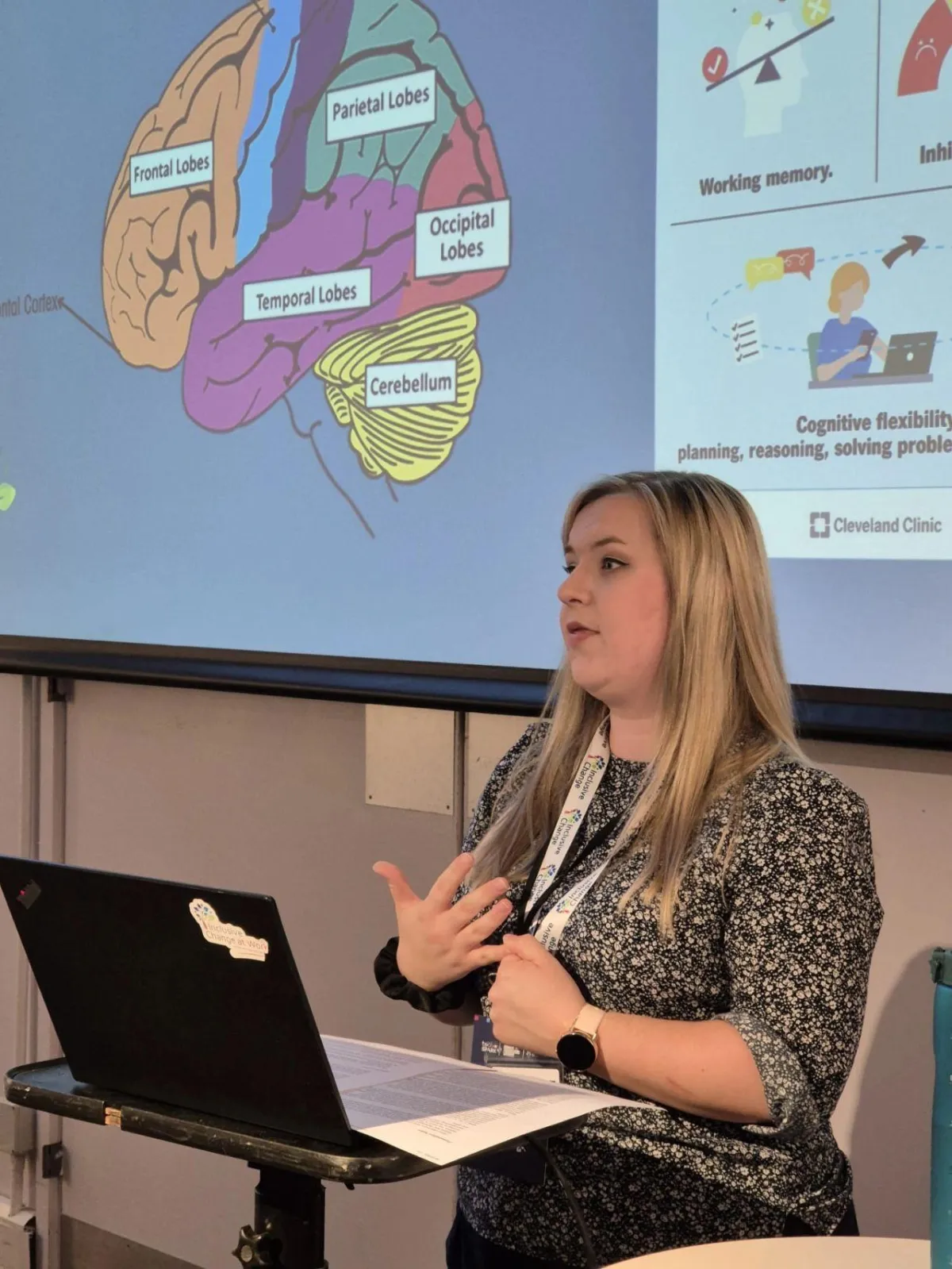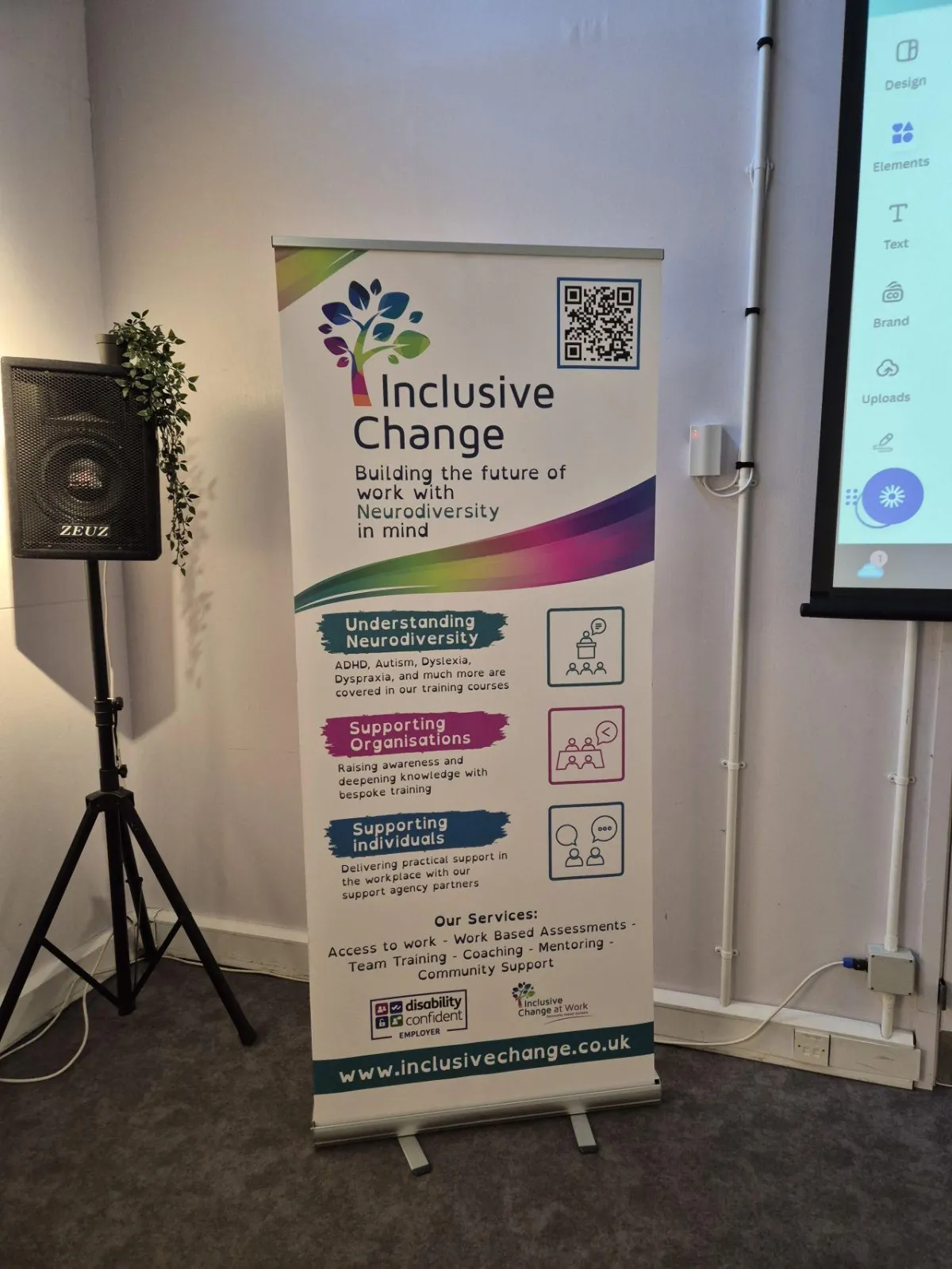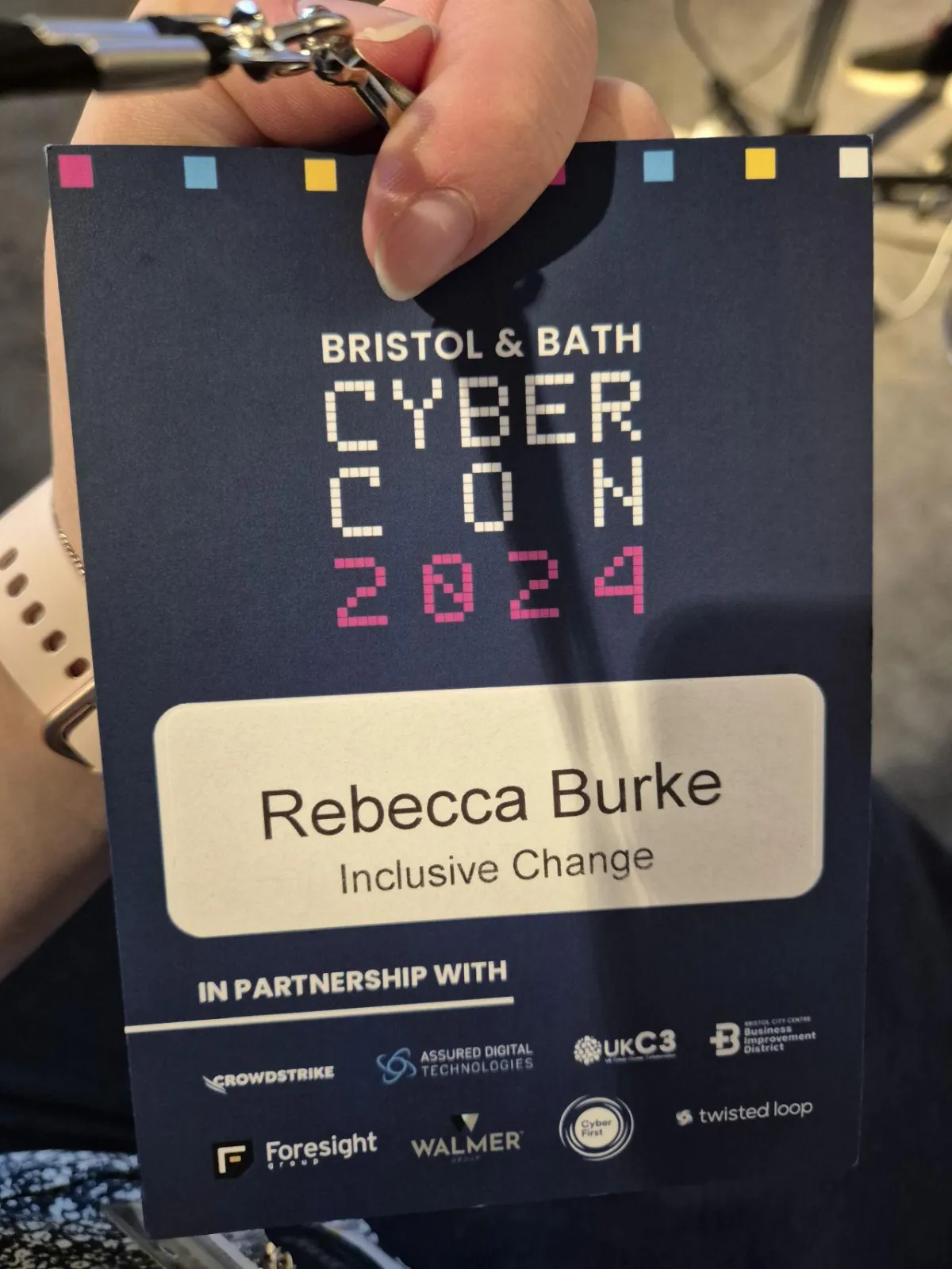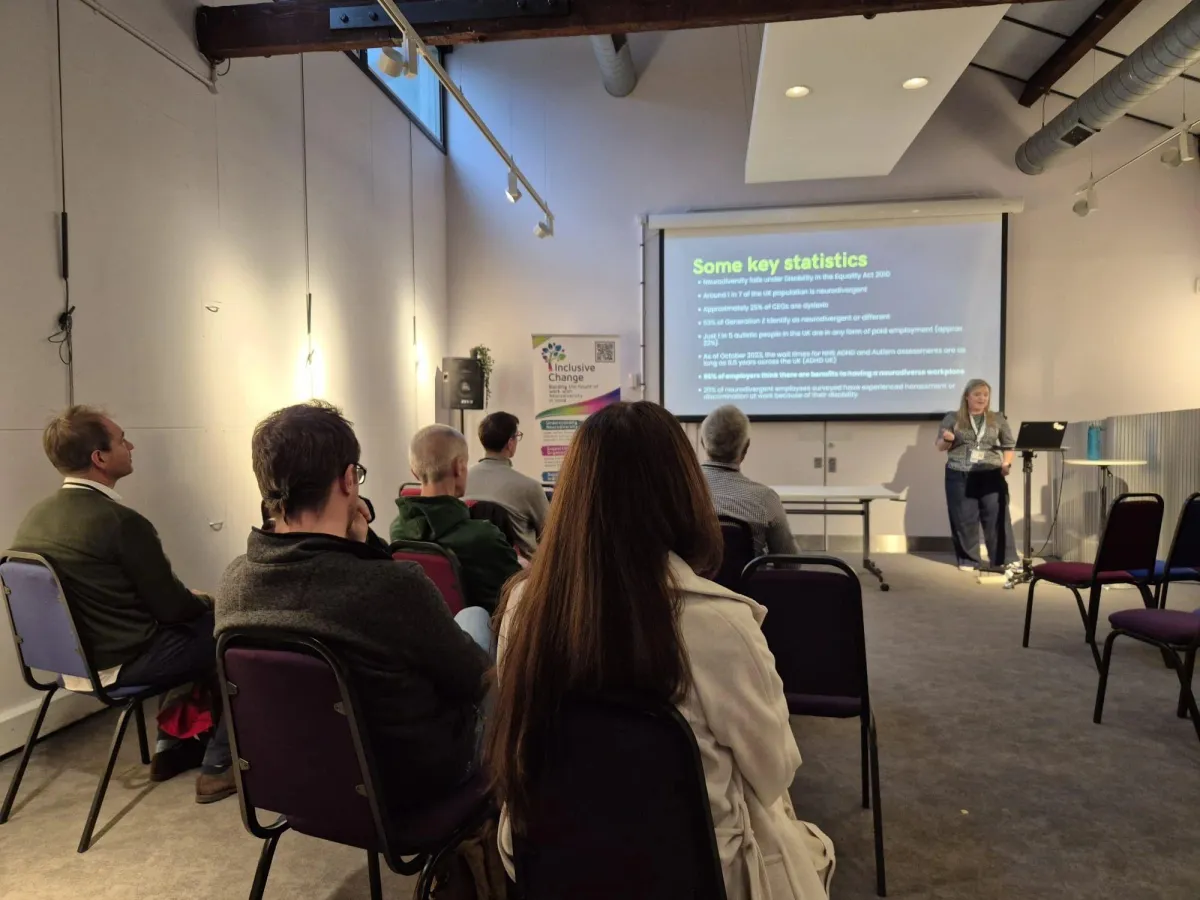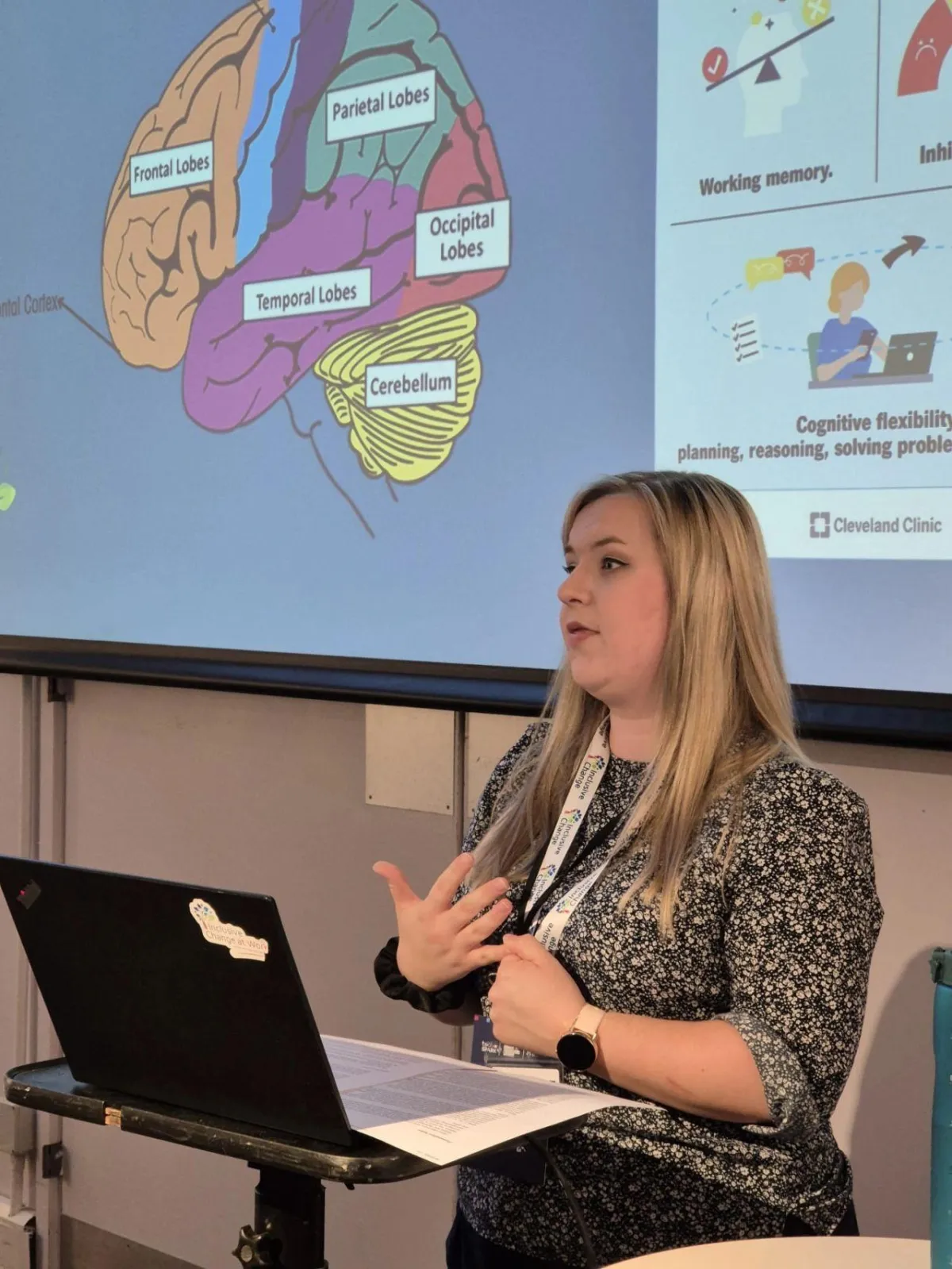
Becca Burke
Speaker
Empowering Neurodiversity in the workplace
Hi, I am Becca!
I'm Becca, a passionate advocate for neurodiversity and understanding ADHD in the workplace. Living with ADHD (combined presentation) myself, I bring a unique blend of professional experiences and personal insights to the conversation about creating inclusive, productive work environments. Equity in the workplace is especially important for us as neurodiverse folk; if given the adjustments and support we need, we can not only survive, but thrive at work.
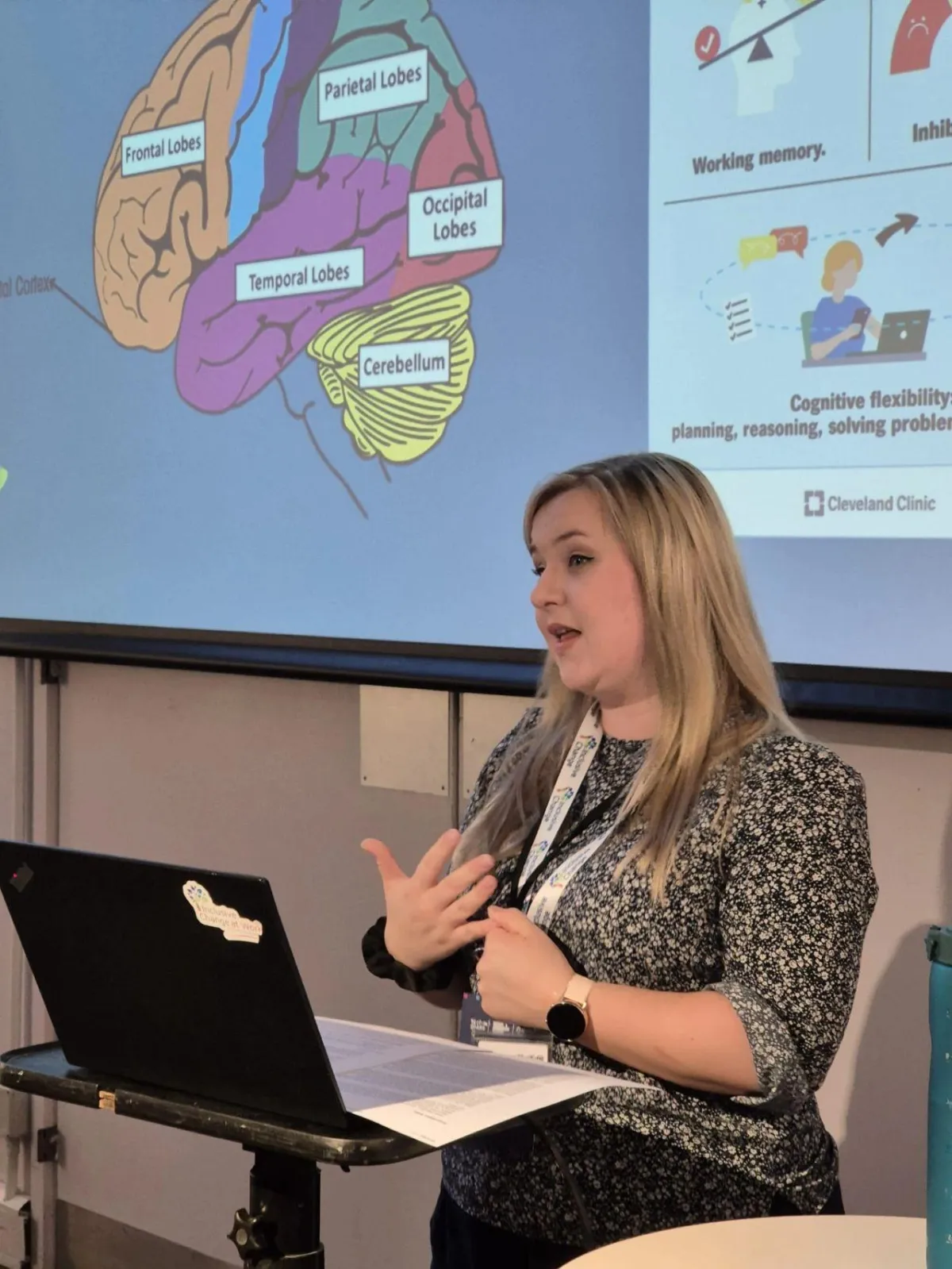
My professional journey
My career path has been varied, in true ADHD style! From my early days in customer relations to roles in sales and account management, I've always excelled in building relationships and understanding people's needs. My time at a FTSE 100 bank gave me a solid foundation for navigating large organisations and the politics of the office environment, and I then had to adapt quickly to the drastic changes of the Covid-19 Pandemic Lockdown. It was during this time, recognising the disruption to my routine, hyperfocusing on work outside of my core hours, and my inability to finish any tasks to completion, that I realised something wasn’t working for my brain.
Throughout my career, I’ve recognised that I was struggling, but never quite understood why. I saw so much of my own journey in the struggles I heard from other neurodiverse people, and I wanted to find a way that I could tangibly make a difference. After my own diagnosis in early 2024, I was inspired to become an ADHD Coach with Leanne Maskell's ADHD Works, and led to me being headhunted for Inclusive Change Ltd as Support Specialist.
My Areas of Expertise
- ADHD awareness and management strategies
- Education and training around ADHD for businesses
- Job coaching neurodivergent clients at work
- Rejection Sensitive Dysphoria awareness/training
- Business process improvement for neurodiverse workforce support
- Working with clients as a neurodiversity educated Virtual Assistant
- Neurodivergent talent recruitment and retention
- ADHD Works Level 1 Coach
Popular Discussion Topics
- Rejection Sensitive Dysphoria (RSD) & ADHD
- ADHD and the menopause
- ADHD screening in prisons
- ADHD and neurodiversity co-occuring traits
- ADHD celebrities
- Current research development
Living with ADHD
- Physiological difference in the brain
- ADHD facts and figures
- Common misconceptions
- Lived experience
- Interactive Q&A
ADHD in the Workplace
- Common challenges and strategies
- Strengths ADHDers bring to the workplace
- Challenges for us in the workplace
- Helpful strategies
- Reasonable Adjustments
- Equality Act 2010 protection
My Speaking Style
I pride myself on being engaging, insightful, and empathetic. My presentations blend personal anecdotes, research-based strategies, and interactive elements that leave audiences both informed and inspired. I like making complex topics accessible, and providing concrete, implementable solutions to common workplace challenges.
Why Choose Me?
At Inclusive Change, we understand your ‘Why,’ and meet you where you are on your journey as a business. Whether you're looking to educate your HR or leadership teams, or provide valuable insights to your entire organisation, I can help. I don’t believe that we as neurodivergent people need to change who we are to succeed; with the right support, education and awareness, we can be ourselves without compromise.
Work with me
Ready to transform your understanding of ADHD in the workplace?
Would you like me to run a workshop for you?
Get in touch using my calendar below.
Read my blog here: https://inclusivechange.co.uk/blog/b/adhd-and-me
Read more
The blog

Understanding RSD
What is Rejection Sensitivity Dysphoria (RSD)?
Rejection Sensitivity Dysphoria (RSD) is an intense emotional response to perceived or actual criticism, rejection, or failure, often experienced by individuals with ADHD, autism, and other neurodivergent profiles. Unlike typical reactions to criticism, RSD can feel overwhelming, sparking feelings of shame, sadness, or frustration. For some, the fear of negative feedback or rejection can be so intense that it leads to avoidance of social interactions, criticism, or any situation where judgement might arise.
How Does RSD Affect Individuals?
People with RSD often feel emotional pain more acutely and may experience prolonged negative effects from even minor criticism or rejection. This sensitivity can influence self-esteem, personal relationships, and job performance. For instance, someone with RSD may react to a routine feedback session at work with intense self-doubt, anger, or distress, impacting their confidence and productivity. These feelings may also lead to coping mechanisms like perfectionism, people-pleasing, or withdrawal to avoid any potential criticism. RSD is not something that individuals can control through willpower alone, as it stems from deeply ingrained neurological and emotional processes.
Strategies to Regulate RSD
While RSD can be challenging, there are ways to manage it effectively:
1. Building Awareness
Understanding that RSD is a neurological response rather than a character flaw can help individuals and those around them approach it with empathy. Awareness reduces self-blame and enables those affected to seek strategies and support without feeling they are overreacting.
2. Practising Self-Compassion
Self-compassion exercises, such as mindfulness or journaling, can help individuals with RSD develop a kinder, more forgiving inner dialogue. Recognising that mistakes and rejection are part of human experience may help alleviate the intensity of emotional reactions.
3. Cognitive-Behavioral Techniques
Cognitive-behavioral approaches, including reframing thoughts and challenging negative beliefs, can help individuals see feedback as constructive rather than personal. Therapists or coaches specializing in neurodiversity can provide tools to reshape responses to perceived criticism.
4. Structured Feedback and Communication
For those working with or managing individuals with RSD, using structured feedback models like Inclusive Change’s C.H.A.N.G.E framework can be instrumental. Managers can approach feedback compassionately, focusing on growth, setting clear expectations, and maintaining open dialogue to help minimize anxiety related to criticism.
5. Seeking Professional Support
Therapists trained in ADHD, autism, and RSD-specific challenges can help individuals develop resilience and coping mechanisms. Accessing supportive communities and professional networks may also reduce feelings of isolation and provide practical strategies for handling RSD in day-to-day life.
A Compassionate Approach to RSD
RSD may present unique challenges, but with understanding and the right support, individuals can learn to navigate their emotional responses more effectively. Compassionate approaches, both from oneself and from others, can create a foundation for growth, resilience, and a stronger sense of self-worth.
For additional resources and tailored guidance on supporting neurodivergent individuals in the workplace, consider reaching out to Inclusive Change. We offer workshops, toolkits, consultancy and professional support to help individuals and organisations build a supportive and inclusive environment for everyone.
Links for support:
1. Mind – Mental Health Support for ADHD and Autism
Mind offers a variety of mental health resources that include support for individuals dealing with emotional dysregulation, a core aspect of RSD. They provide guidance on understanding and managing intense emotions:
Mind - Mental Health Resources
2. ADHD Foundation UK
This charity provides resources and information on ADHD, including workshops and support materials that can be useful for understanding RSD and managing emotional sensitivity:
3. National Autistic Society (NAS)
NAS offers resources for those on the autism spectrum, including guidance on managing rejection sensitivity and emotional challenges. They have information for individuals, families, and employers to help foster a supportive environment:
National Autistic Society - Emotional Support
4. Anna Freud National Centre for Children and Families
The Anna Freud Centre provides support for young people and adults dealing with mental health challenges, including anxiety and self-esteem issues linked to RSD. They also offer a range of self-help resources and information for parents and caregivers:
5. YoungMinds – Mental Health Support for Young People
YoungMinds has resources for young people, including those dealing with intense emotions and low self-esteem often associated with RSD. They provide resources for understanding and managing emotional responses:
6. Inclusive Change – Neurodiversity Workshops and Toolkits
Inclusive Change offers specialised workshops, toolkits, and consultation services to support neurodivergent individuals and their employers in managing RSD and fostering an inclusive work environment:
For enquiries for professional support services, get in touch at enquiries@inclusivechange.co.uk
Some of the Companies Inclusive Change Have Worked With So Far


Column Header
Lorem ipsum dolor sit amet consecetuer lorem ipsum
Organically grow the holistic world view of disruptive innovation
At the end of the day, going forward, a new normal that has evolved
Column Header
Lorem ipsum dolor sit amet consecetuer lorem ipsum
Organically grow the holistic world view of disruptive innovation
At the end of the day, going forward, a new normal that has evolved
Column Header
Lorem ipsum dolor sit amet consecetuer lorem ipsum
Organically grow the holistic world view of disruptive innovation
At the end of the day, going forward, a new normal that has evolved
Inclusive Change Ltd
The Brightwell, Bradbury House
Wheatfield Drive
Bradley Stoke, Bristol
BS329DB
Copyright 2025 - Inclusive Change Ltd
Companies House: 12412464
VAT NO: 352 1564 17
ICO Reg: ZB081779
UK Register of Learning Providers: 10090652

